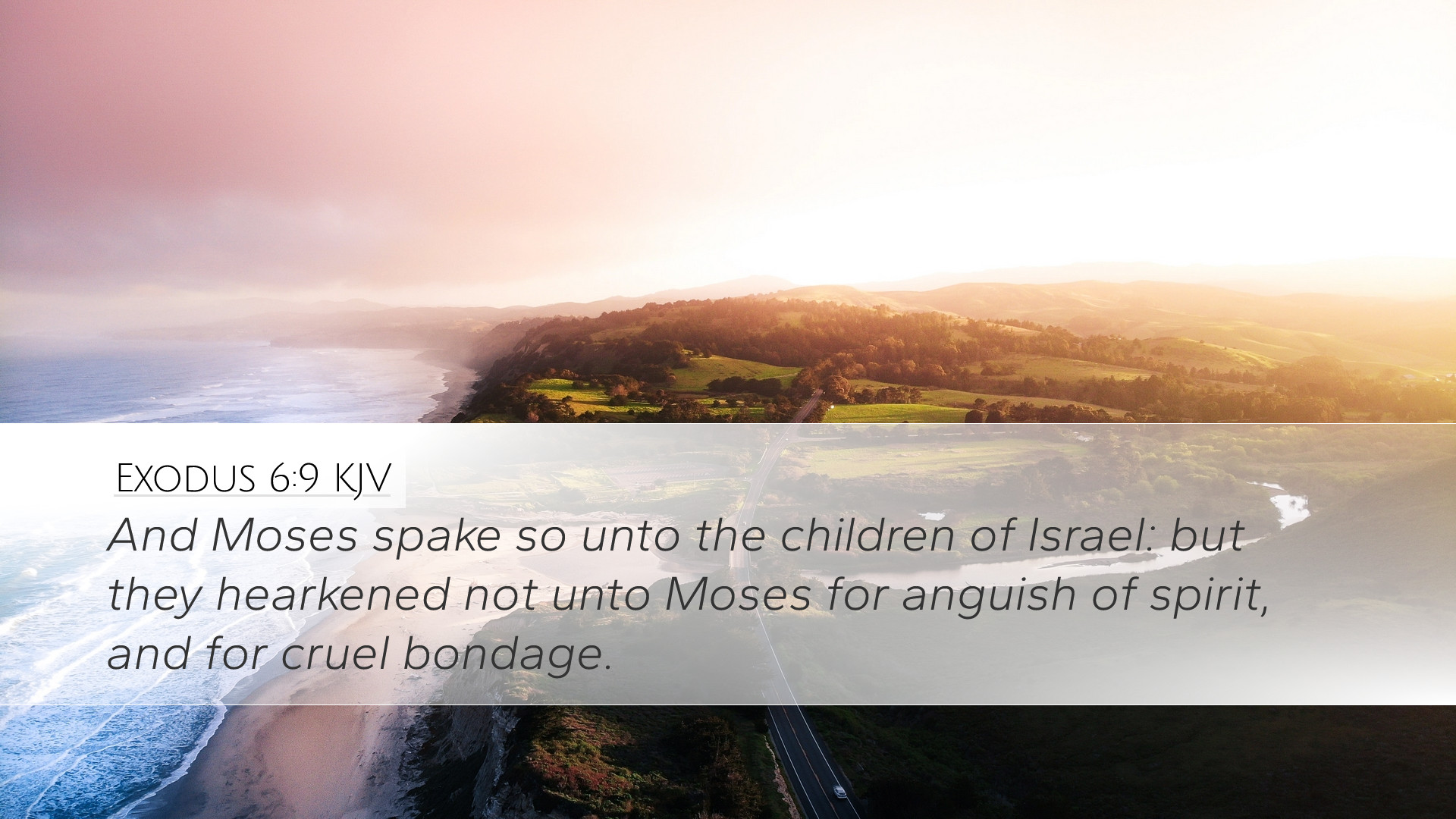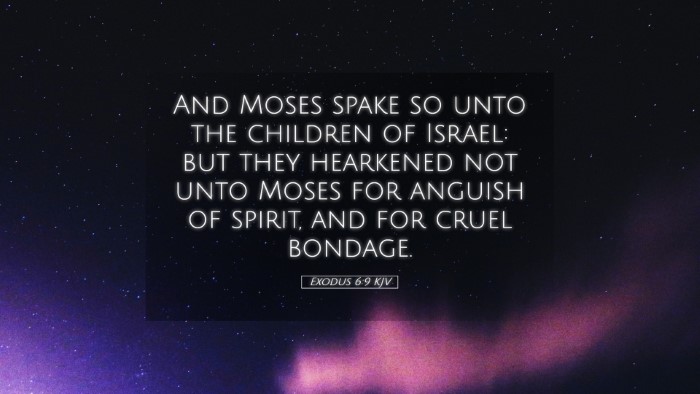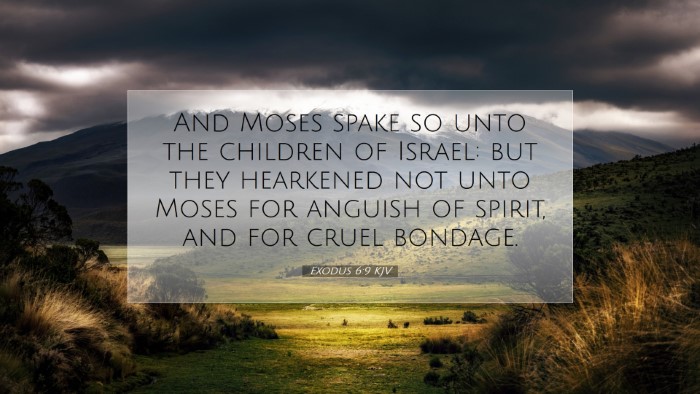Bible Commentary on Exodus 6:9
Verse: Exodus 6:9 - "And Moses spake so unto the children of Israel: but they hearkened not unto Moses for anguish of spirit, and for cruel bondage."
This verse captures a poignant moment in the narrative of the Exodus, where Moses, fulfilling God's command, speaks to the Israelites but faces rejection. Here, we gather insights from various public domain commentaries to unpack its significance.
Contextual Background
The context of Exodus 6 reveals a critical juncture in the Israelite experience of oppression in Egypt. The Israelites faced intense suffering, which is vital for understanding their response to Moses.
Historical Context
- Oppression in Egypt: The Israelites had been enslaved for generations, leading to deep-seated despair.
- Moses' Mission: Moses, chosen by God, has just received reassurance of God's covenant promises, yet his previous attempts to free Israel resulted in increased suffering.
Commentary Insights
Matthew Henry's Commentary
In his commentary, Henry reflects on the emotional state of the Israelites. He notes that their "anguish of spirit" serves as a barrier to their faith. Despite Moses conveying God's promise of deliverance, their overwhelming despair and the harshness of their bondage rendered them unable to receive the message. Henry emphasizes the importance of spiritual readiness in responding to God’s promises.
Albert Barnes' Notes on the Bible
Barnes elaborates on the 'anguish of spirit' emphasizing that this condition leads to a lack of faith and hope. He suggests that this verse highlights how physical suffering can impact spiritual receptiveness. He argues that the Israelites’ suffering made it difficult for them to believe in deliverance, reflecting a common human experience where present trials cloud the vision of future hope. This reflects a significant theological principle: the struggle of faith amidst trials.
Adam Clarke's Commentary
Clarke focuses on the psychological aspects affecting the Israelites. He notes that their "cruel bondage" had not only physical implications but had also severely impacted their morale and hope. Clarke emphasizes that their distress was not merely due to their situation but also stemmed from a deep sense of hopelessness, illustrating a struggle that many believers face when the reality of their experiences does not align with their expectations of divine intervention.
Theological Implications
This verse serves as a powerful reminder of the struggle between faith and despair. It highlights the intersection of human suffering with divine promise, emphasizing several key theological themes:
- The Nature of God’s Promises: Despite their inability to believe, God's promises are steadfast and true.
- The Reality of Human Suffering: It's crucial to acknowledge that suffering can cloud one’s ability to trust in God's deliverance.
- The Role of Leadership: Moses represents spiritual leadership which can sometimes confront unyielding resistance due to the congregation's despair.
- Hope amidst Despair: The narrative invites readers to hold onto hope, even when circumstances appear to contradict it.
Practical Applications for Pastors and Theologians
For pastors and theologians, this passage emphasizes the need for sensitivity to the pain of others. Here are practical applications drawn from the commentary insights:
- Empathy in Ministry: Understand that congregants may be struggling with deep emotional pain that affects their faith.
- Encouraging Hope: Encourage others to see beyond their circumstances by reminding them of God’s promises.
- Building Trust: Ministries should focus on building trust where hope can take root, especially in communities experiencing prolonged suffering.
- Addressing Physical and Spiritual Needs: Actively address both physical and spiritual needs to help navigate through times of trouble.
Conclusion
Exodus 6:9 stands as a testament to the human condition during times of suffering. The insights from Matthew Henry, Albert Barnes, and Adam Clarke reveal that while the Israelites were situated in a dire circumstance, God's assurances remained unchanged. This passage challenges both leaders and followers of faith to find pathways of hope amidst despair, inviting spiritual resilience in the face of overwhelming odds. By understanding the depth of human anguish and the enduring nature of God's promises, we may better navigate our own journeys of faith and encourage others along the way.


